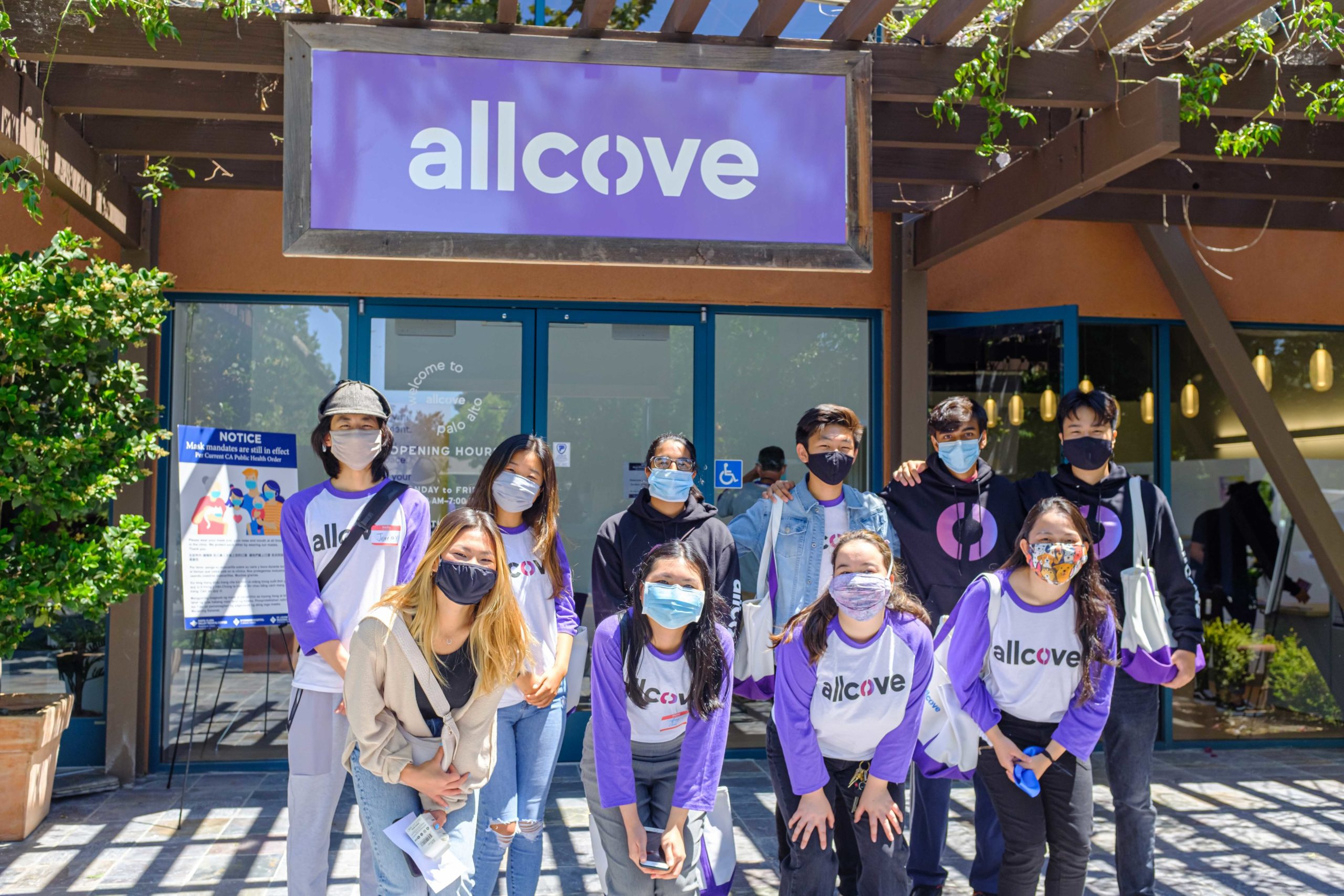Two new spaces providing mental health services for youth opened in San Jose and Palo Alto this summer.
Allcove, a mental health group which provides services for people 12 to 25 for little to no cost, opened the two new centers in the East Bay on June 25 after a long history of providing digital services.
Consisting of Youth Advisory Groups (YAG) and a central team made up of mental healthcare professionals, allcove serves young people with telehealth services for both mental and physical health, substance abuse counseling, peer and family support, and education support and career coaching.
The group has been planning to open up physical centers since its inception and can now provide all these services and more in-person to youth looking for support with mild to moderate needs.
When entering the Palo Alto site, youth are welcomed into the space by bright walls, colorful chairs and throw pillows. According to YAG member Emily Wang, allcove aims to normalize mental health and create a welcoming environment through the layout of the centers, including location, furniture and colors.
Julia Ransom ’24 describes allcove as a place “by and for youth.” She joined allcove’s Youth Advisory Group (YAG) after losing her brother to suicide in 2016 and seeing her sister struggle with anxiety. Two advisory groups help run allcove, one in Palo Alto and one in San Jose.
Wang explained YAG is made up of several committees, including a design committee, adding that mural colors, chair colors or even the setup of the new buildings are all decided by YAG members. True to their mission, youth were involved in every step of the design process.
According to Grace Talice Lee, allcove’s Youth Outreach Specialist, the program is “totally youth-driven and youth-centered,” and the staff aims to make it “a welcoming, supportive place for the youth.” The group consists of diverse individuals from both centers ages 16 to 25. Their goal is to represent their communities while addressing stigma related to mental health and designing the vision for allcove.
The program is a special initiative of Stanford Medicine’s Department of Psychiatry and Behavioral Sciences, and also receives support from Lucile Packard Children’s Hospital Stanford and Santa Clara County Behavioral Health Services.
The services have received support from those in local government, including Santa Clara County supervisor Joe Simitian.
“Time after time, the saddest part of the story is that a teen didn’t reach out earlier, didn’t have the opportunity to get help when and where they needed it,” Simitian said in a release. “The appeal of the allcove model is it’s designed to engage young people who are struggling, long before they hit a crisis point.”
Some community leaders in Santa Clara County acknowledged a long history of suicides and mental health issues in Palo Alto.
Steven Adelsheim, director of the Stanford Center for Youth Mental Health and Wellbeing, was behind the implementation of allcove after he was inspired by Australia’s system of providing mental healthcare to youth, called headspace. The community-based model focused on early intervention services and centralized services for youth across the country. It prioritizes accessibility, equity and youth input. His idea was to adapt the model for the United States, beginning with California.
According to Adelsheim, schools aren’t always able to provide effective early mental health care, even though half of all mental health problems arise by age 14. He said many administrators believe that schools should not be involved in mental healthcare, and the services provided vary between different schools.
“We really don’t have the spaces available for young people to get early care,” he said. “Schools are often limited in the space they can make available.”
According to Adelsheim, allcove is also hoping to expand its centers throughout the rest of California and the United States. This year, the staff and YAG are planning to move into San Mateo.
“I see in the next four years at least, allcove throughout the Bay Area. Hopefully, every city in the area, or multiple,” said Jeremy Peng, a YAG member and senior at Palo Alto High School.
